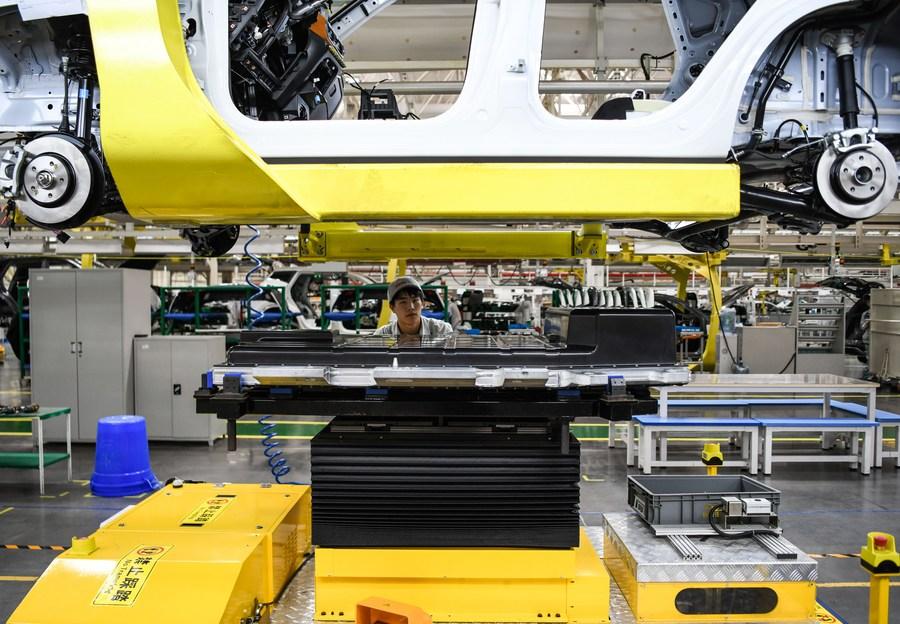ARAXA, May 18 (Xinhua) -- While electrification, urbanization, sustainability, digital transformation and other trends are creating large market space for the adoption of advanced materials, the "Chinese speed" of transforming an idea into a practice is facilitating the win-win cooperation between China and Brazil in the lithium battery sector using niobium products.
"China today has the most advanced laboratories in the world for technology development and almost infinite number of highly qualified people in the area of batteries, so we are able to transform ideas in a very fast way into a product and validate this product with final clients," Rogerio Ribas, head of battery products of Companhia Brasileira de Metalurgia e Mineração (Portuguese for Brazilian Metallurgy and Mining Company, or CBMM for short), said in a recent interview with Xinhua in Araxa, Minas Gerais state, where CBMM is headquartered.
CBMM is a global leader of niobium products and technology that are applied in a number of industries, including steel, infrastructure, mobility, aerospace, health and energy, to make materials more resistant, durable, safer, lighter and less corrosive, hence reduction in overall emission throughout product life cycle.
For decades, the company's niobium products have been mainly used in the steel industry. In China, it helped establish a welding technology research and development (R&D) center for the country's steel industry.
"We have a lot of projects in China not only with the steel industry, but also with the end users, in order to provide value to the whole chain," said Marcelo Scuccuglia, commercial director of CBMM.
A few years ago, CBMM started developing niobium products suitable for application in the lithium battery sector, with the aim to increase electronic conductivity, operating voltages, chemical stability, energy density, safety, ionic activity, and to lower operating temperature and reduce the time for charging.
"We have several projects in China in partnership with Chinese cathode and anode producers, battery manufacturers, universities, R&D centers in terms of niobium technologies for lithium batteries," said Ribas.
He applauded the "Chinese speed" of transforming a business idea into "a commercial reality", and attributed the successful bilateral cooperation to quality infrastructure for R&D access as well as China's clear development goal of electrification.
An atmosphere has been built that greatly facilitates technological development related to electrification in China, said Ribas.
Tiago Amaral, manager of environment and technological support of CBMM, believed that China's economic development has helped "all the industries and the whole market" as it "opens doors for new technologies to be adopted".
Amaral used to travel frequently from Brazil to China for technological support. He echoed Ribas in terms of the "Chinese speed" that "adapts new technologies in a very innovative and quick way."
He considered it's "fundamental" for CBMM to have partners in China who adopt "the technology and the best practice" with them, are open to listen, and can jointly develop the partnerships.
Although around 90 percent of CBMM's current business revenue comes from its niobium products for the steel industry, the Brazilian company has decided to shift more attention to the non-steel sectors like battery and high-performance applications.
Niobium technology fits very well in China's steel industry as the country is the world's major steel producer and consumer, Amaral pointed out, adding that the new trend of electric vehicles in China is also crucial for the development of lithium batteries using niobium products.
"All these applications will complement each other in order to bring a better result for both countries," he said. (Contributed by Luo Jingjing, edited by Su Dan with Xinhua Silk Road, sudan@xinhua.org)




 A single purchase
A single purchase









